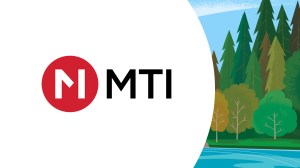Field service took on a whole new meaning during the COVID-19 pandemic — sending technicians on site for a customer issue needed planning of an entirely different nature.
Hillsboro, OR-based MTI develops hardware for retail security and tablet mobility, supporting these products with software and global services to install and maintain its products. They work with retail stores, restaurants, hotels, hospitals, and more across the globe to set up displays for products like mobile phones, laptops, and hardware for tablets to provide an engaging customer experience and reduce theft.
Salesforce sat down with Mary Jesse, CEO of MTI, to reflect on the company’s digital transformation amidst the pandemic using Salesforce Field Service, an effort that she says has helped the company better serve its customers and keep employees safe.
Q. What were your goals for MTI when you joined the company in February 2020?
MTI was founded in 1977. We have remained true to our retail roots but we were in need of system upgrades.
I joined with the intent of first understanding and then transforming the business in such a way that we would not only improve our existing operations, but also enable growth and scalability.
The transformation wasn’t just about finding the right technology, but about transforming every part of the organization, including our organization, our systems, and our processes.
Q. What pain points was MTI experiencing with field service and manufacturing?
When you have a company that’s been around for as long as we have, you have a lot of legacy systems. It’s a big lift to transform — you have so much existing data, established processes, many valued customers, and complex infrastructure.
We really wanted to grow our field service business and had a lot of opportunities to do so, but we were constrained by manual processes and outdated tools. We were not taking advantage of the latest and greatest technology available.
The same is true on the manufacturing side — we weren’t embracing the benefits of instrumenting the business digitally to not only run efficiently, but then leverage newly available data driven intelligence to make better long term business decisions.
We realized that we needed to start eliminating everything manual about our business and instrument processes so that MTI could get better data and visibility into key areas of the business.
Q. What was it like leading MTI’s digital transformation efforts in the midst of a pandemic?
The pandemic completely turned everything upside down. For us, the pandemic drove tremendous change in our customers, employees, and operations — just as we were embarking on planned changes.
So, we married those two things up as best as possible.
The first priority was the safety of our employees – it took precedence above everything else. Next, we turned our sights to taking advantage of the downtime when retailers were closed to lean into the heavy lift to truly transform our business and to adopt these new tools in a really meaningful way.
We put a lot of resources into adopting Salesforce Field Service. It was a tremendously successful venture but it was also a big investment of time and people, which were more available as a result of the pandemic. So, despite all the challenges brought about by the pandemic, in this way, it worked in our favor.
Q. How did you see this investment start to impact MTI’s business?
By leveraging Salesforce Field Service, we’ve been able to reduce manual scheduling needs by 50% and now run 70-80% of service trips through our optimization model. Not only that, but we’re able to drill down and see to the minute when somebody is on site, what they’re doing and how it relates back up to a complete customer project.
The average time to resolve a case has decreased as we’ve leveraged multiple applications within the Salesforce ecosystem — the speed of our business is so much faster.
The average time to resolve a case has decreased as we’ve leveraged multiple applications within the Salesforce ecosystem — the speed of our business is so much faster.
Mary Jesse, CEO, MTI
Additionally, our reporting capabilities are so much richer in data. Our customers really appreciate being able to get that level of information because it helps them operate their business and gives their management team similar visibility.
There’s one customer conversation in particular that I remember where they mentioned we’ve basically leapfrogged the competition. They wished they had this data from all of their suppliers.
Q. How has this set up MTI for long term success?
Despite having a pandemic overlaid on top of our growth plans, we were able to transform in 2020 and are growing our business in 2021 and beyond.
We’ve been able to expand our product offering by productizing new services and offerings based on having these new capabilities. This is something I really didn’t anticipate at the beginning and that’s been fabulous.
The Salesforce implementation is helping to provide the underlying infrastructure for our growth plans, so that’s pretty exciting.
Q. How does Manufacturing Cloud fit into MTI’s plans?
We’re implementing Manufacturing Cloud to get more precision in our MRP (materials requirement planning) process.
We send parts to our service organization as well to our customers and we need to be able to track the full lifecycle of those components. It’s critical for our business, especially now because supply chains have been pressured with parts shortages, increased lead times and inflation.
It’s more important now than ever to be able to know what we have, where it’s coming from, and where it’s going.
Q. What advice would you share for a company that is just about to embark on their own digital transformation journey?
I’ve been involved in digital transformations for a long time and there’s a common fallacy that I have found. Most people underestimate the work that has to be done by the organization before, during, and after implementation.
Often what’s missing is that companies don’t realize they need to document their business first – the desired workflow, the choke points, and how business success is measured. This defines the requirements and use cases for your implementation.
Once you understand your specific business needs, then you can really memorialize that knowledge in the configuration of your tools because all of these applications need to be configured to be effective.
The best advice is to be dialed in to what you want and need for your business.
Click to learn more about Salesforce Field Service and Manufacturing Cloud, and read our recent news announcement here on how Salesforce is transforming customer service from anywhere.




